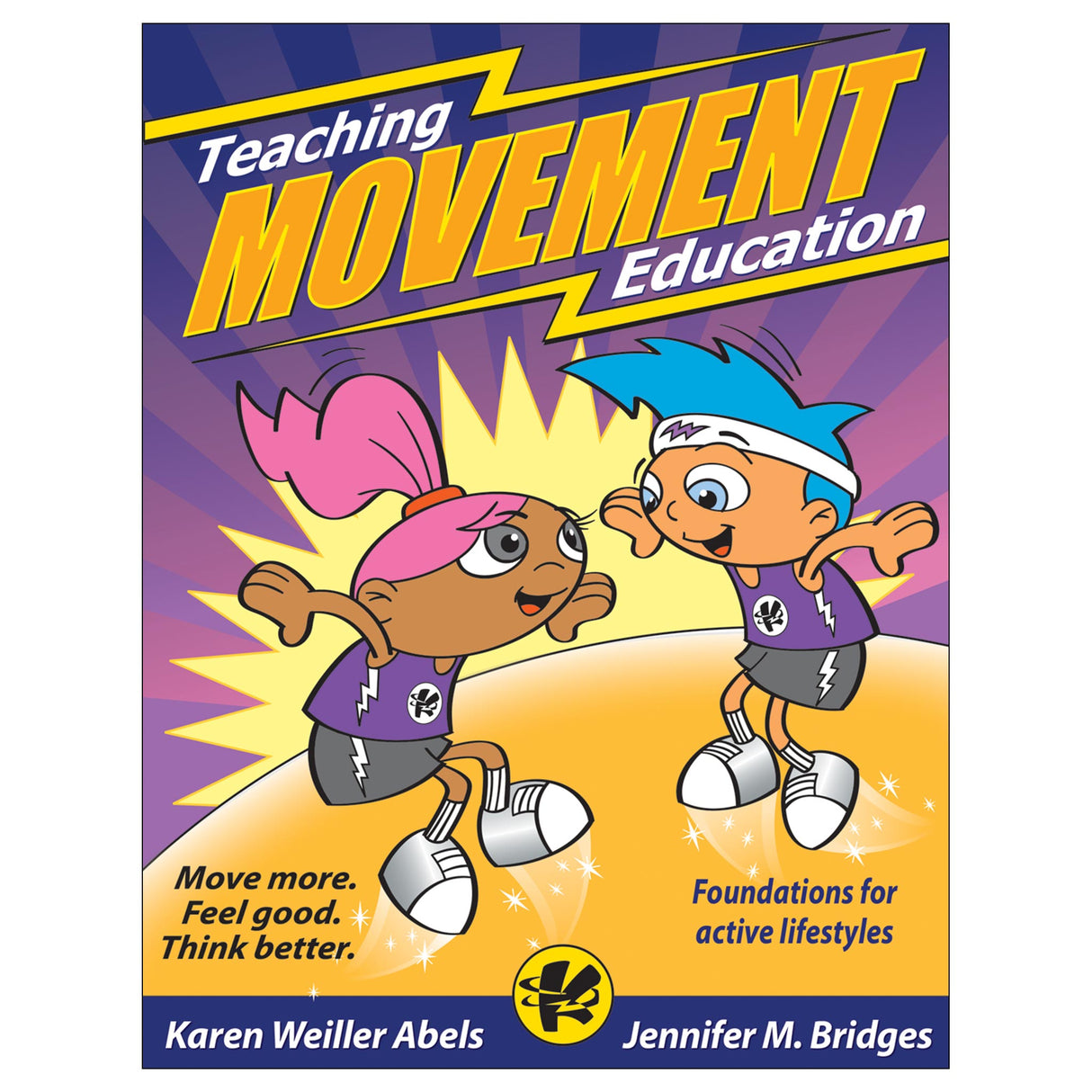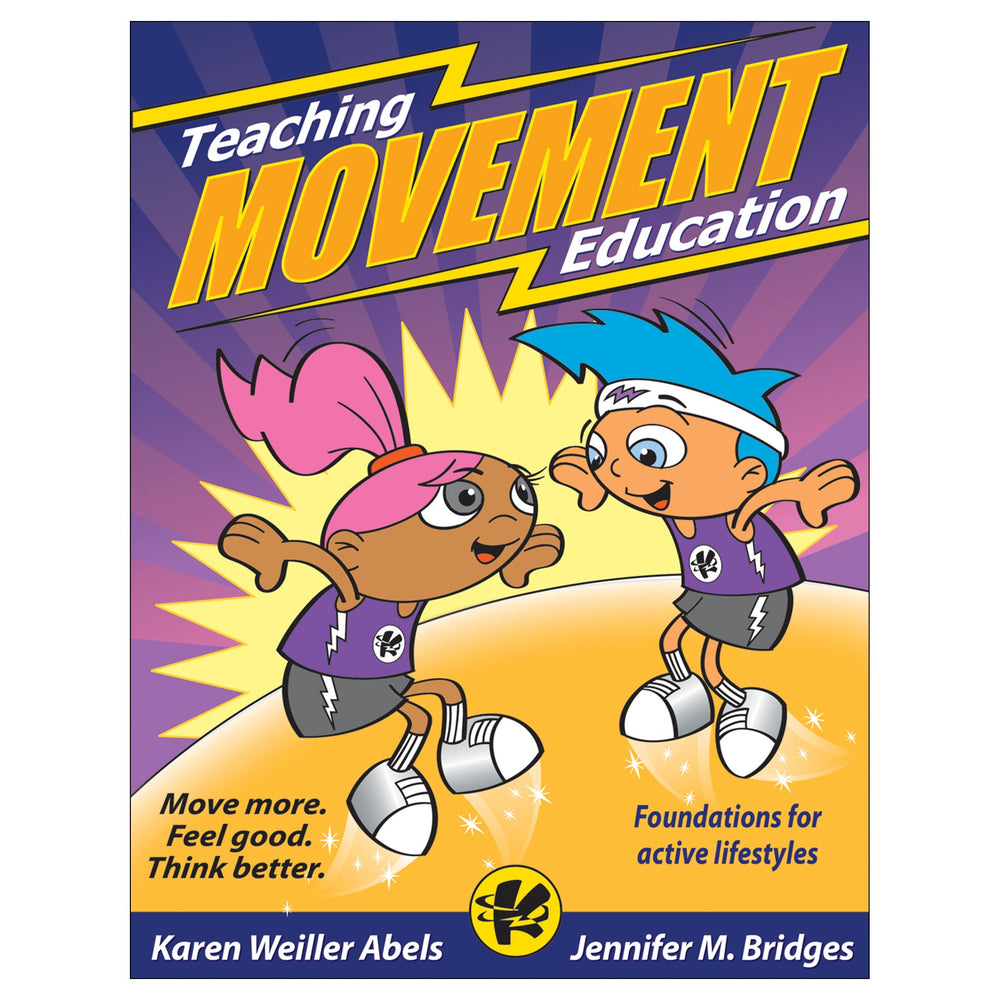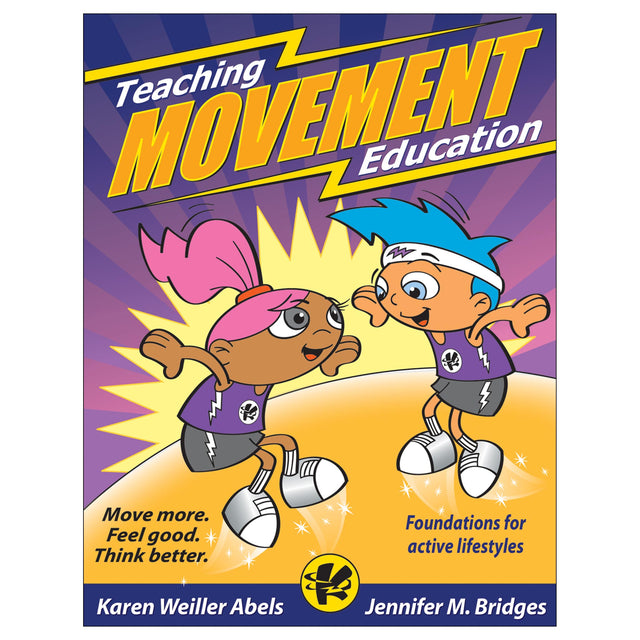Teaching Movement Education PDF
Foundations for Active Lifestyles
$51.95 CAD
Access Duration: 10 Years
Movement skills give students the foundation for leading physically active, healthy lives. This book offers a perfect balance of knowledge base, pedagogy, and curriculum content—delivered with practical learning tools and activities—so you can help your students develop movement skills that foster healthful habits.
This theoretically sound resource has the following features:
• A movement education tree with roots for the four basic movement concepts (body, space, effort, relationship)
• A flip ’n’ fold listing of the four main concepts and their subcategories and elements, which you can easily store in your pocket or on a clipboard when teaching
• A wealth of developmentally appropriate and fun movement education activities with which you can teach the fundamentals of movement education
• Engaging KinetiKidz characters that demonstrate technically correct form for 121 movement elements and that help children move more, feel good, and think better
In section 1, authors Karen Weiller Abels and Jennifer Bridges introduce you to the history and philosophy of movement education and guide you through the movement education framework that you can use in your teaching. You explore how to teach movement skills and are supplied with fresh and creative ideas to incorporate movement teaching into your classes.
In section 2, part I, you move from learning about movement education to incorporating it into your classes. Here, you learn how to teach the four basic movement concepts and their related elements through 166 activities in the four concept areas. Section 2, part II supplies 6 educational games lesson plans, 6 educational gymnastics lesson plans, and 5 educational dance lesson plans.
Teaching Movement Education offers a complete framework to help your students build their movement skills and, in the process, enjoy being active throughout their lives.
Section 1: Introduction to Movement Education
Chapter 1. History and Philosophy of Movement Education
Chapter 2. Movement Education Framework Content
Chapter 3. Developmentally Appropriate Teaching and Assessment
Chapter 4. Foundation for an Active Lifestyle
Chapter 5. Innovative Teaching Ideas for Movement Education
Chapter 6. Activity Analysis: Application to the Movement Education Framework
Section 2: Teaching Movement Education
Part I: Movement Concept Activities
Chapter 7. Body Activities
Chapter 8. Space Activities
Chapter 9. Effort Activities
Chapter 10. Relationships Activities
Part II: Core Content Area Lessons
Chapter 11. Teaching Educational Games
Chapter 12. Teaching Educational Gymnastics
Chapter 13. Teaching Educational Dance





